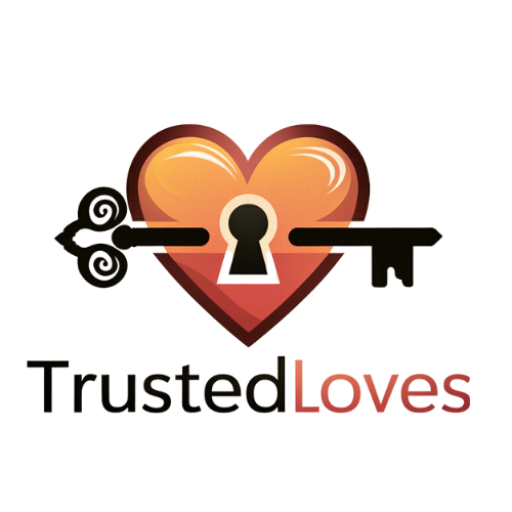Relationships are complex and sometimes challenging. If you’re wondering, “Am I the problem in my relationship?” you’re not alone. This comprehensive guide will help you understand your role in your relationship, identify potential issues, and provide actionable steps to improve your relationship dynamics. What Are You Looking for in a Relationship? So let’s get started with Am I the Problem in My Relationship.
How Can I Tell if I’m the Problem in My Relationship?
It can be difficult to see our own faults. Here are some signs that you might be contributing to the issues in your relationship:
- Constant Blaming: If you frequently blame your partner for problems without acknowledging your own faults, this could be a sign.
- Lack of Communication: Poor communication or avoiding important conversations can create misunderstandings and resentment.
- Defensiveness: If you become defensive whenever your partner brings up an issue, it can hinder resolution and growth.
Self-Reflection
Take time to reflect on your behavior and its impact on your relationship. Journaling or talking to a trusted friend can provide insights.
What Are 3 Signs of a Bad Relationship?

Identifying signs of a bad relationship can help you understand the dynamics at play:
- Lack of Trust: Trust is fundamental. If there’s a constant lack of trust, it indicates deeper issues.
- Poor Communication: Frequent misunderstandings and unresolved conflicts suggest communication problems.
- Emotional Distance: Feeling disconnected or emotionally distant from your partner can signal a problem.
Am I Toxic or Not?
Understanding if your behavior is toxic is crucial for personal growth and healthy relationships. Here are some signs of toxic behavior: The Toxic Person Test
- Manipulation: Trying to control or manipulate your partner’s actions or feelings.
- Jealousy: Excessive jealousy and possessiveness can harm the relationship.
- Criticism: Constantly criticizing your partner and undermining their self-esteem.
Self-Assessment
Take a moment to assess your actions and their effects on your partner. Seeking feedback from friends or a therapist can provide an objective perspective.
Is My Partner Toxic or Am I?
Distinguishing between your own toxic behavior and your partner’s can be challenging. Here are some indicators to help you assess:
- Patterns of Behavior: Consistently harmful patterns in your partner’s behavior can indicate toxicity.
- Impact on Well-being: Consider how the relationship affects your emotional and physical well-being.
- Mutual Effort: Healthy relationships require effort from both partners. If only one partner is trying to improve, it might be a sign of toxicity.
Can Your Body Reject a Relationship?

Yes, your body can react negatively to a relationship if it’s causing stress or emotional pain. Physical symptoms such as headaches, fatigue, and anxiety can indicate that your body is rejecting the relationship.
Listening to Your Body
Pay attention to your body’s signals. Chronic stress and physical discomfort in your relationship are red flags that shouldn’t be ignored.
What Are 5 Qualities of a Bad Relationship?
Recognizing the qualities of a bad relationship can help you make informed decisions:
- Lack of Respect: Disrespectful behavior and language indicate a lack of respect.
- Control Issues: One partner trying to control the other’s actions or decisions.
- Isolation: Encouraging or forcing isolation from friends and family.
- Lack of Support: Not supporting each other’s goals and interests.
- Constant Conflict: Frequent and unresolved arguments create a toxic environment.
How Do I Stop Being the Problem in My Relationship?
If you’ve identified that your behavior is contributing to relationship issues, here are steps to change:
- Acknowledge and Accept: Recognize your behavior and accept responsibility.
- Seek Help: Consider therapy or counseling to work through your issues.
- Communicate Openly: Discuss your realizations and commitment to change with your partner.
- Practice Empathy: Try to understand your partner’s feelings and perspectives.
- Make Consistent Efforts: Change requires time and consistent effort.
Am I Just Overthinking My Relationship?
Overthinking can cloud your judgment and create unnecessary stress. Here are signs you might be overthinking:
- Constant Worry: Frequent worry about small issues.
- Seeking Reassurance: Constantly seeking reassurance from your partner.
- Analyzing Everything: Over-analyzing every word and action.
Managing Overthinking
Practice mindfulness and try to stay present. Discuss your concerns with your partner to get their perspective and alleviate unnecessary worry.
Am I Overthinking or Is He Losing Interest?

It can be hard to distinguish between overthinking and genuine issues. Here’s how to tell:
- Change in Behavior: Noticeable changes in your partner’s behavior and engagement.
- Lack of Effort: Reduced effort in maintaining the relationship.
- Communication: Decreased communication and avoidance of important conversations.
How Do Overthinkers Love?
Overthinkers often love deeply but may struggle with anxiety and doubt. They:
- Seek Clarity: Overthinkers need clear communication and reassurance.
- Analyze Emotions: They spend a lot of time analyzing their own and their partner’s emotions.
- Show Commitment: Despite their doubts, overthinkers are often very committed and loyal.
How Do You Know if You Are Wrong in a Relationship?
Recognizing when you’re wrong is essential for growth. Here are signs you might be wrong:
- Avoiding Accountability: Refusing to accept responsibility for your actions.
- Defensiveness: Becoming defensive instead of listening to your partner’s perspective.
- Repeated Issues: Facing the same problems repeatedly without resolution.
Am I Forcing My Relationship?
Forcing a relationship often leads to dissatisfaction. Signs include:
- Lack of Genuine Interest: Staying in the relationship out of obligation rather than desire.
- Constant Effort: Feeling like you’re always the one putting in all the effort.
- Ignoring Red Flags: Overlooking significant issues to keep the relationship going.
How Do I Know if a Relationship Isn’t Right for Me?
Knowing when a relationship isn’t right is crucial for your well-being. Indicators include:
- Consistent Unhappiness: Feeling unhappy more often than not.
- Misaligned Values: Significant differences in core values and life goals.
- Lack of Growth: Feeling stagnant and unfulfilled.
What Is Red Flag in Relationship?

Red flags are warning signs of potential problems. Common red flags include:
- Controlling Behavior: Attempts to control your actions and decisions.
- Lack of Trust: Constant suspicion and jealousy.
- Emotional Abuse: Manipulative, dismissive, or abusive behavior.
Why Do I Cause Problems in My Relationship?
Understanding why you cause problems can help you change. Possible reasons include:
- Insecurity: Feelings of inadequacy or fear of abandonment.
- Unresolved Past Issues: Carrying unresolved issues from past relationships.
- Poor Communication Skills: Struggling to express your needs and emotions healthily.
Am I Unhappy in My Relationship or Just Unhappy?
Distinguishing between relationship unhappiness and personal unhappiness is important:
- Reflect on Sources: Identify the sources of your unhappiness.
- Assess Relationship Impact: Consider if your relationship is a significant contributor to your unhappiness.
- Seek Clarity: Discuss your feelings with a trusted friend or therapist.
Am I Falling Out of Love or Is It Just Anxiety?
Feeling anxious can mimic falling out of love. Here’s how to differentiate:
- Consistent Feelings: Feelings of disconnection over a long period.
- Lack of Joy: No longer finding joy in your partner’s company.
- Persistent Anxiety: Ongoing anxiety about the relationship despite efforts to address it.
Why Do I Feel Bad in Relationship?

Feeling bad in a relationship can stem from various issues:
- Unresolved Conflicts: Lingering unresolved issues create tension.
- Lack of Emotional Support: Feeling unsupported and misunderstood.
- Personal Issues: Personal stress or mental health issues affecting the relationship.
When to End a Relationship?
Knowing when to end a relationship is tough but necessary. Signs include:
- Persistent Unhappiness: Constantly feeling unhappy and unfulfilled.
- Lack of Effort: Both partners have stopped trying to improve the relationship.
- Toxic Behavior: Presence of abuse, manipulation, or severe control issues.
How Do I Know if I’m Falling Out of Love?
Recognizing falling out of love involves:
- Emotional Distance: Feeling emotionally disconnected from your partner.
- Lack of Intimacy: Decreased physical and emotional intimacy.
- Indifference: Indifference towards your partner’s feelings and needs.
Do I Still Love My Partner?

Determining if you still love your partner requires introspection:
- Reflect on Feelings: Consider your feelings and what you value in your partner.
- Assess Joy: Reflect on whether you still find joy and satisfaction in the relationship.
- Open Communication: Discuss your feelings with your partner to gain clarity.
Final Words
Final word of Am I the Problem in My Relationship. Understanding your role in a relationship and recognizing potential issues are crucial steps towards improvement. Whether you’re dealing with self-doubt, overthinking, or identifying toxic behaviors, self-awareness and open communication are key. Remember, seeking professional help through counseling can provide valuable insights and tools to foster a healthier relationship. The end of Am I the Problem in My Relationship.











